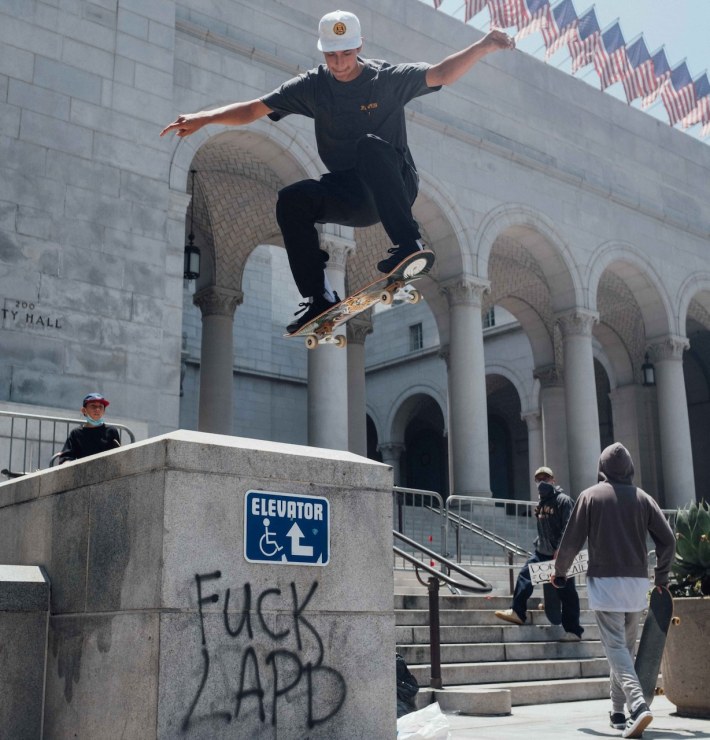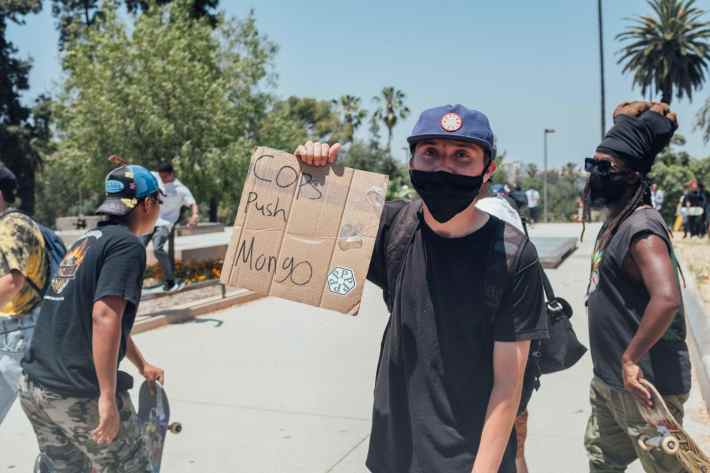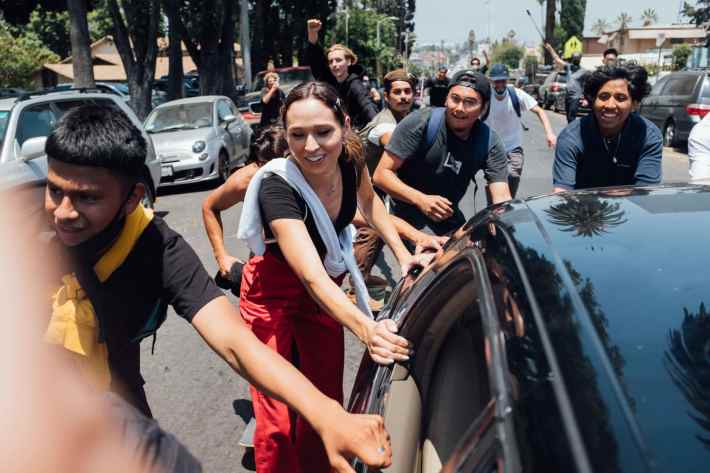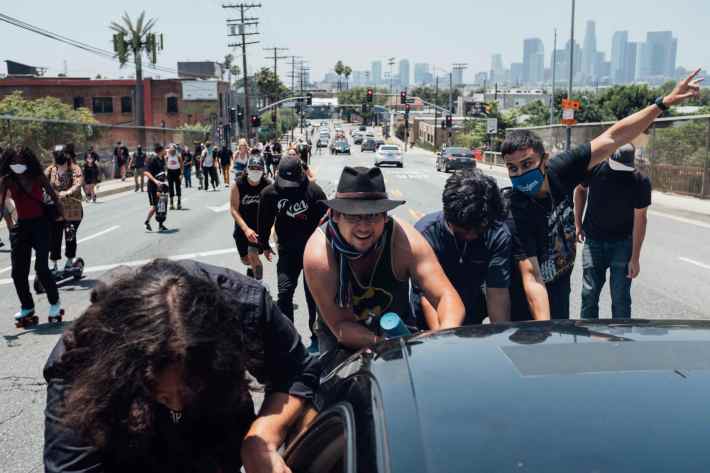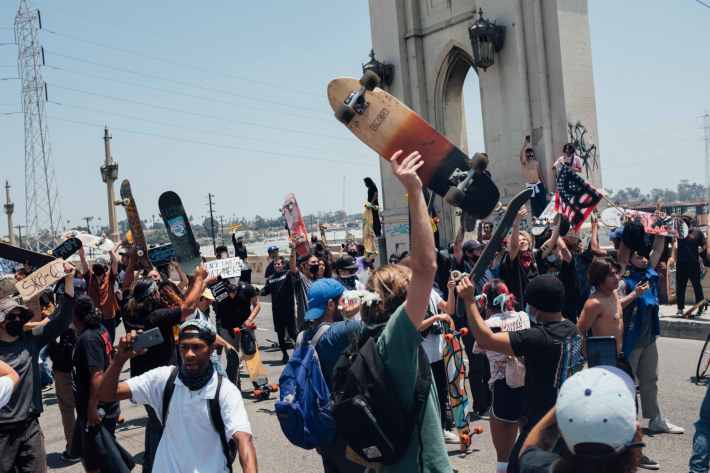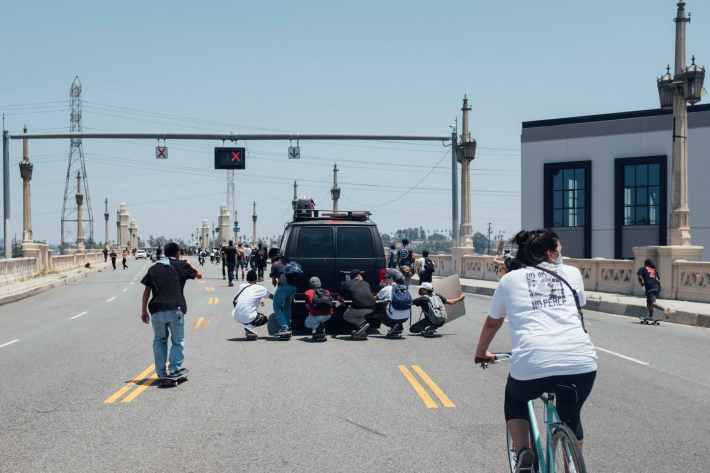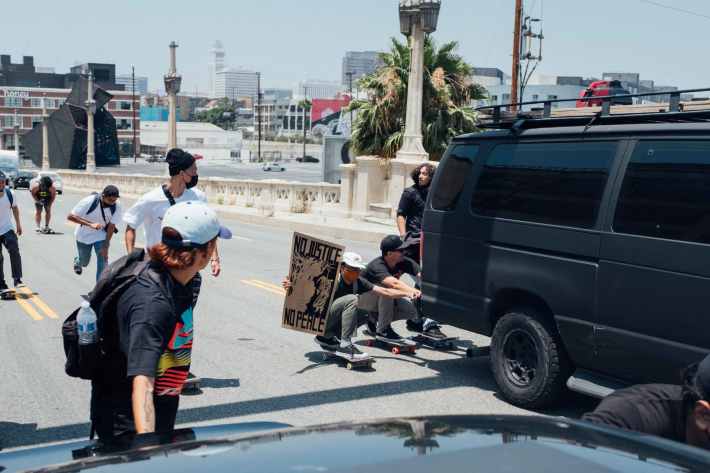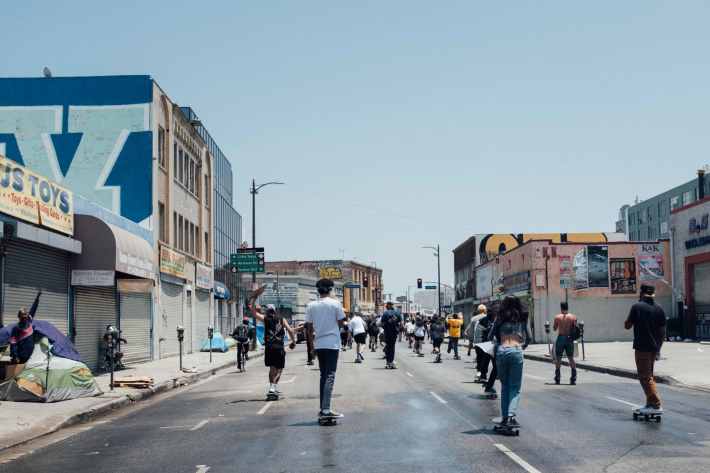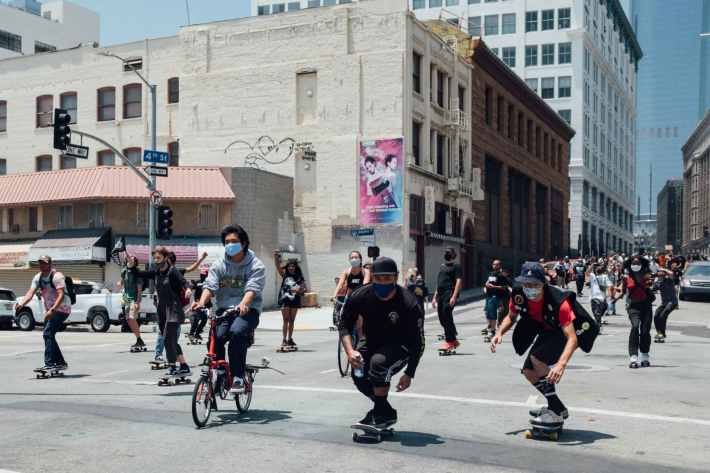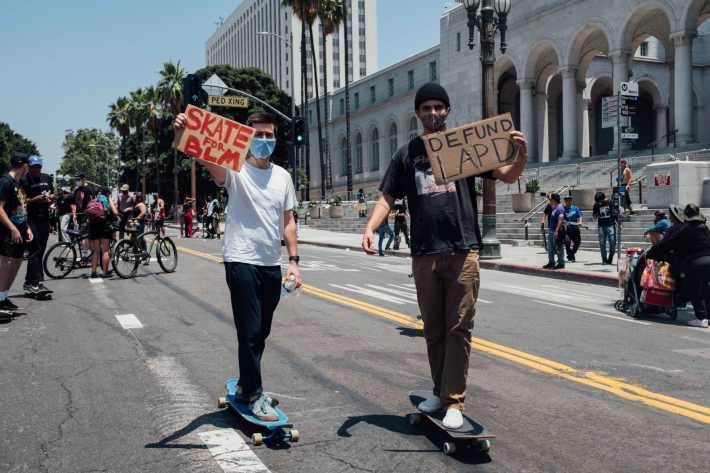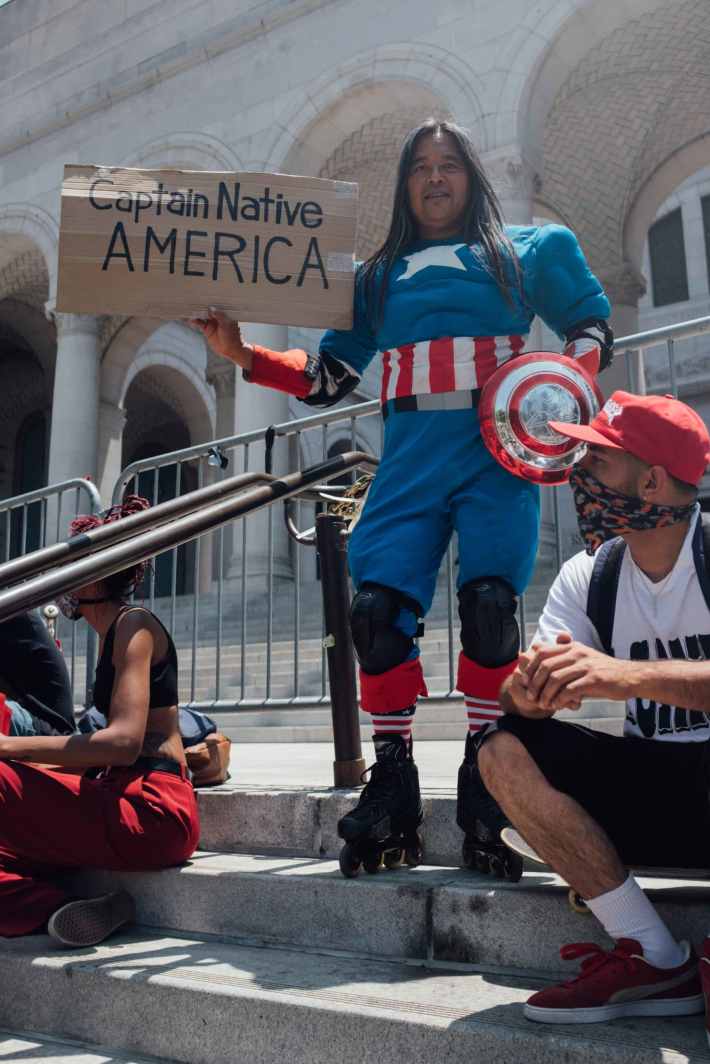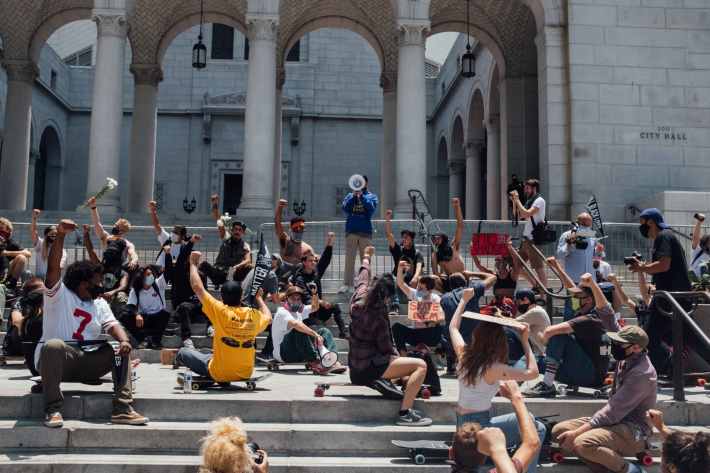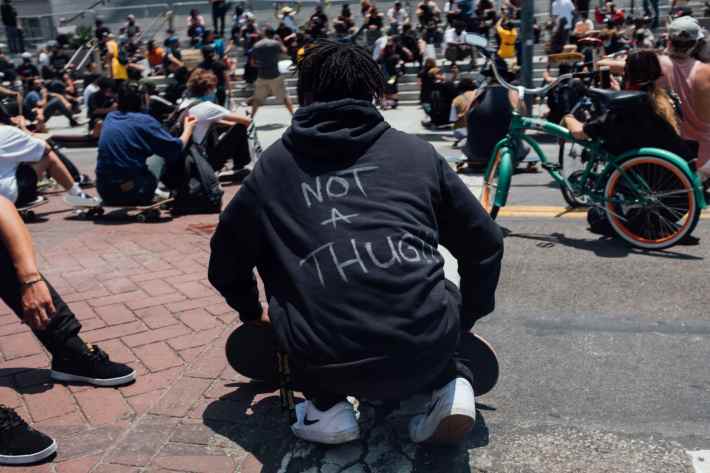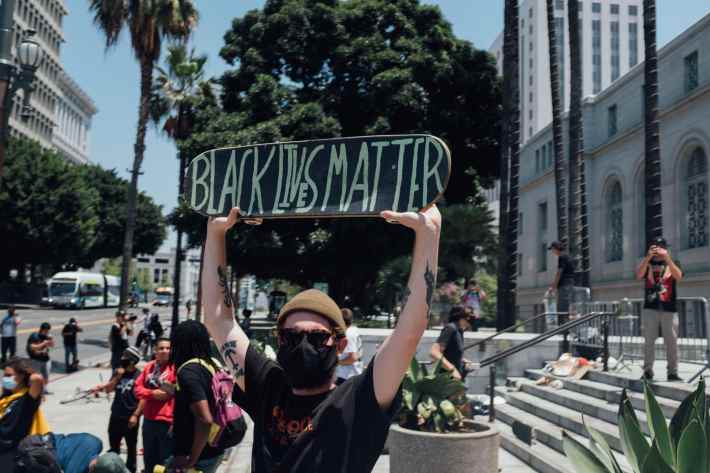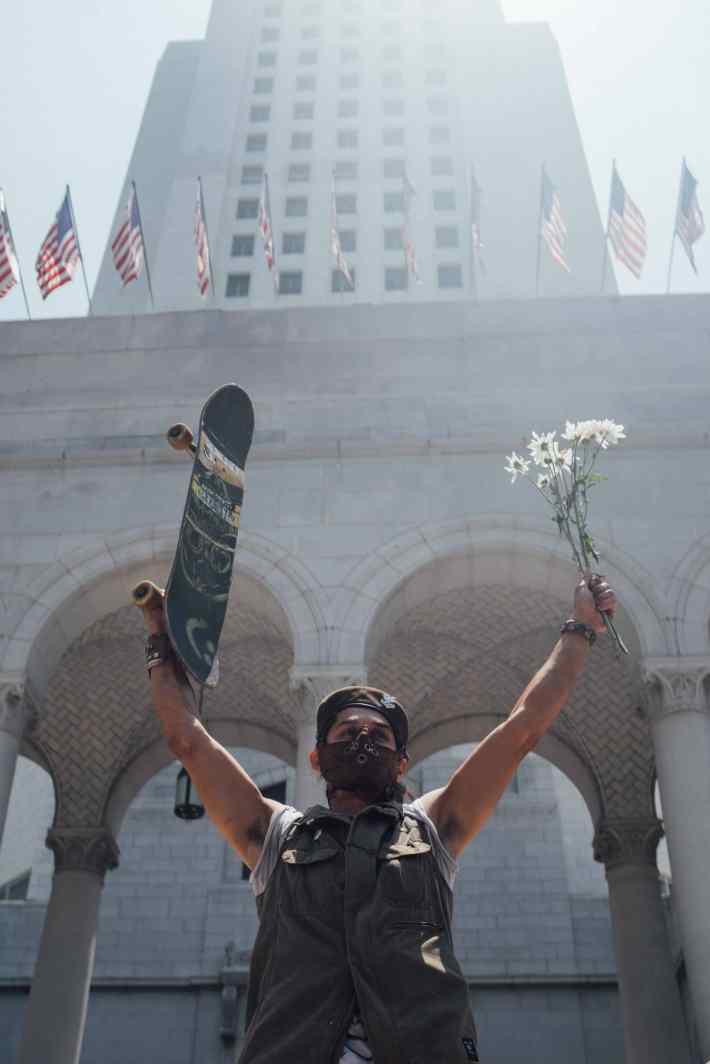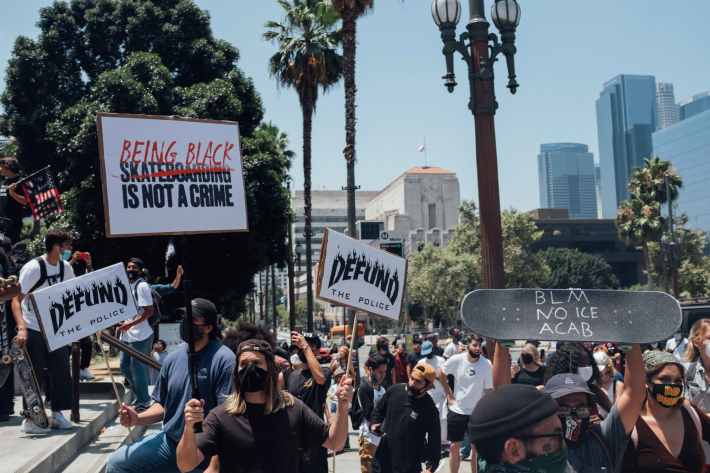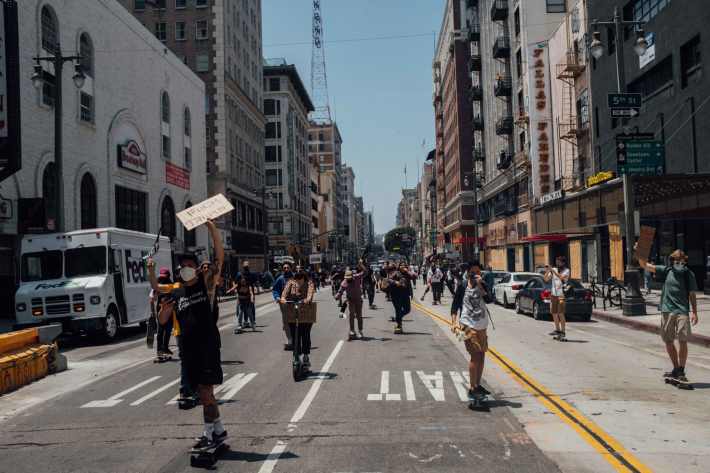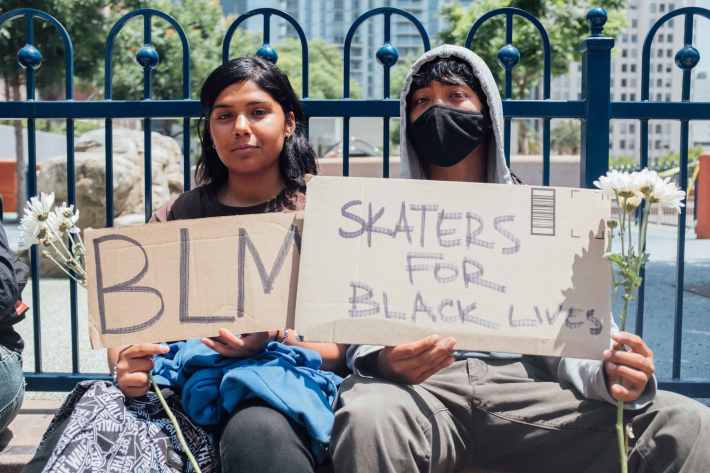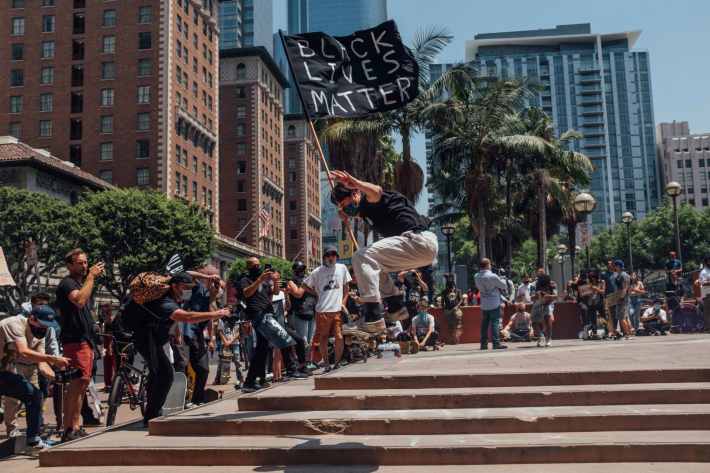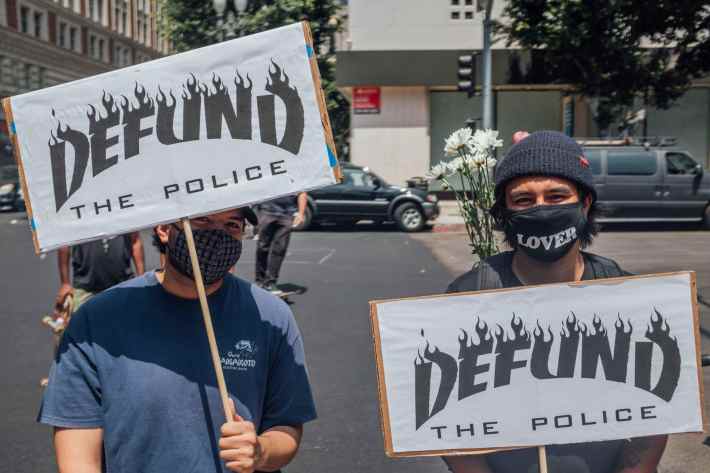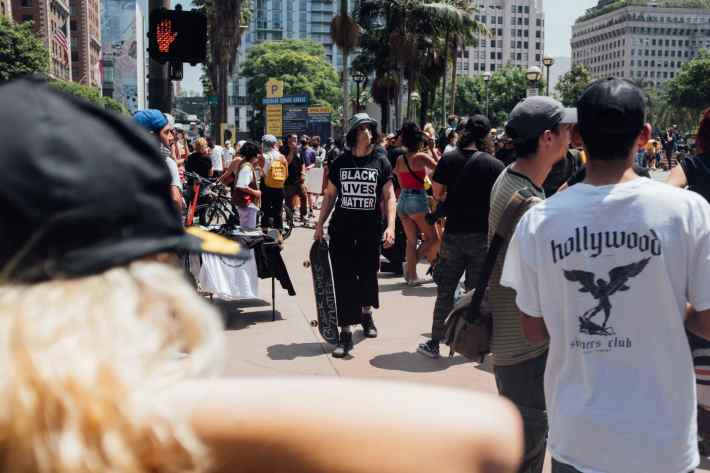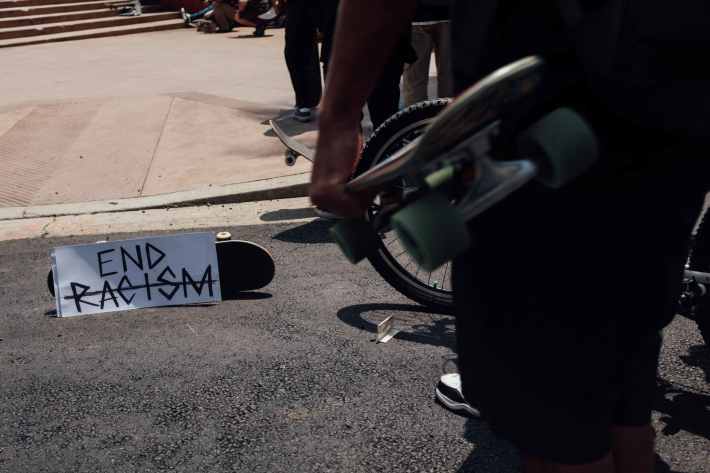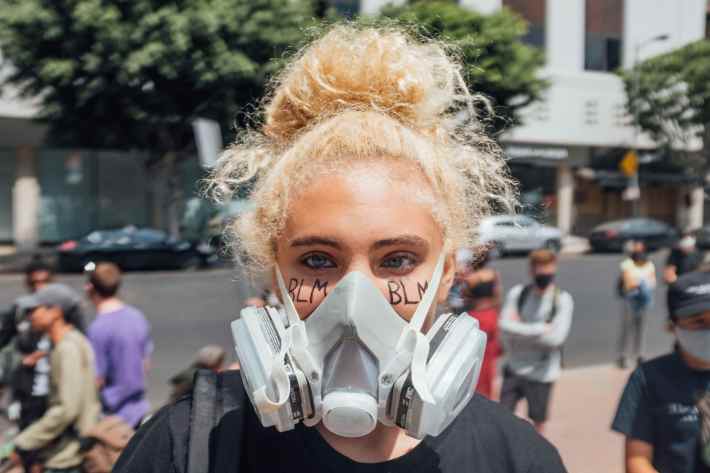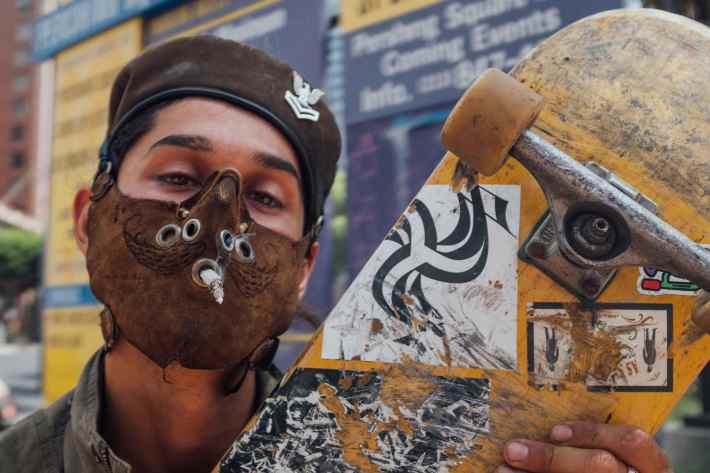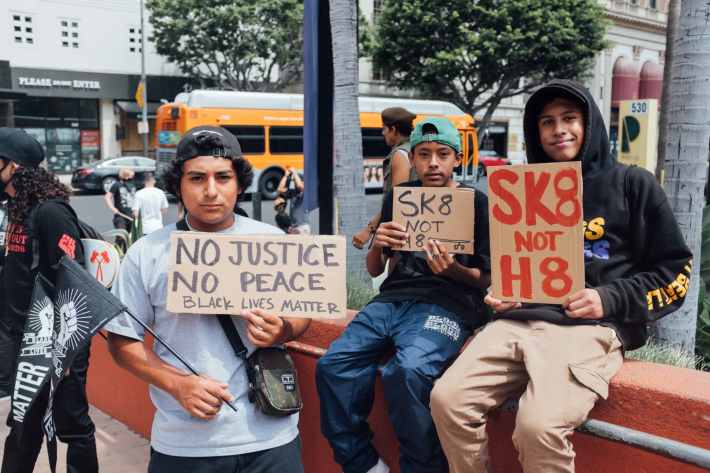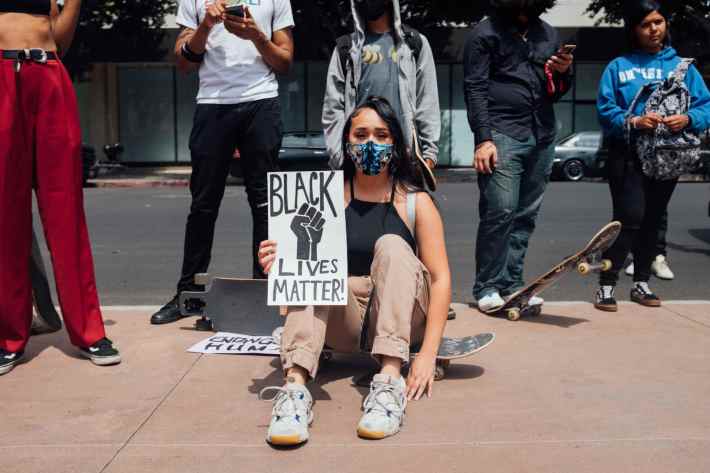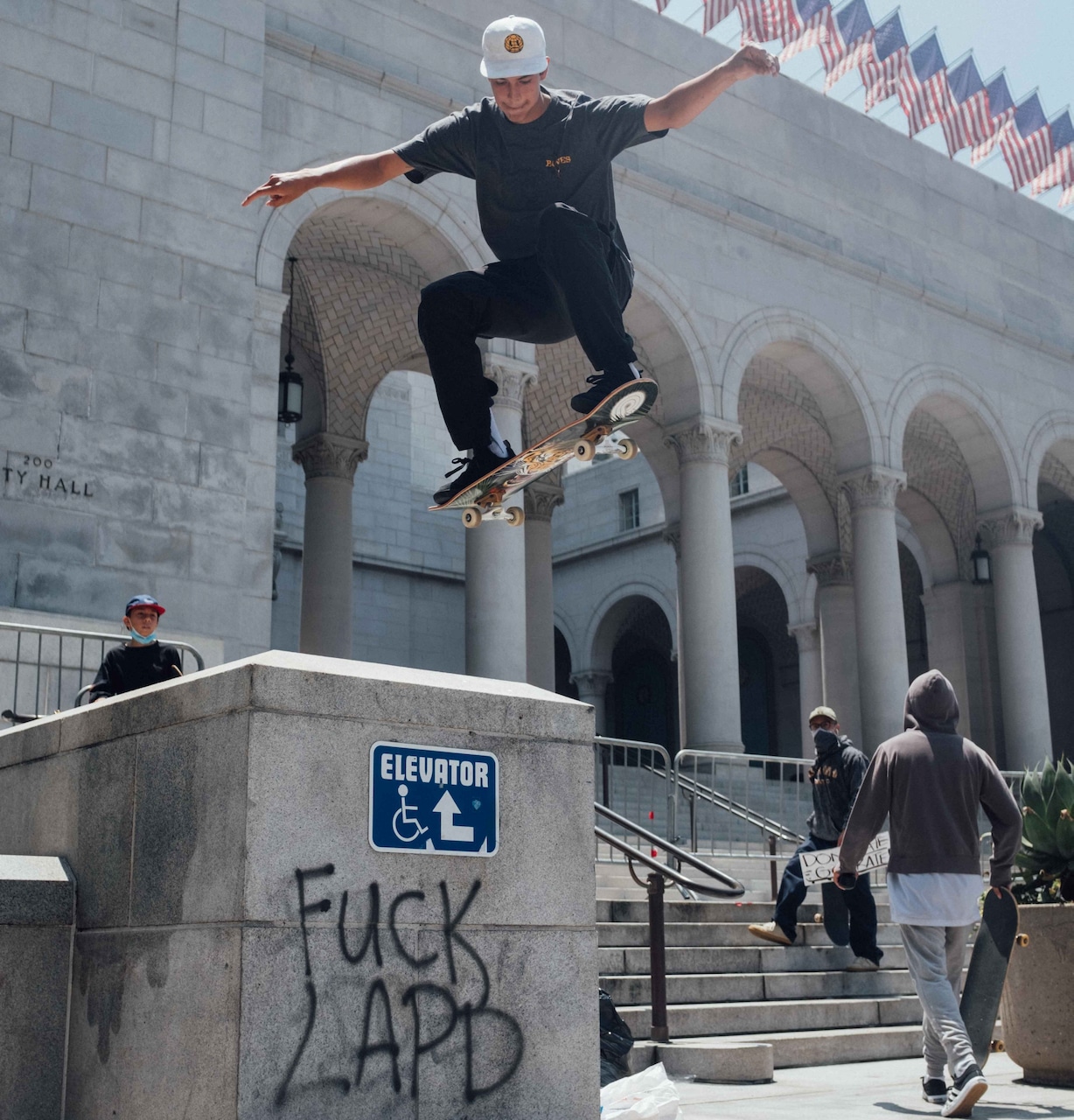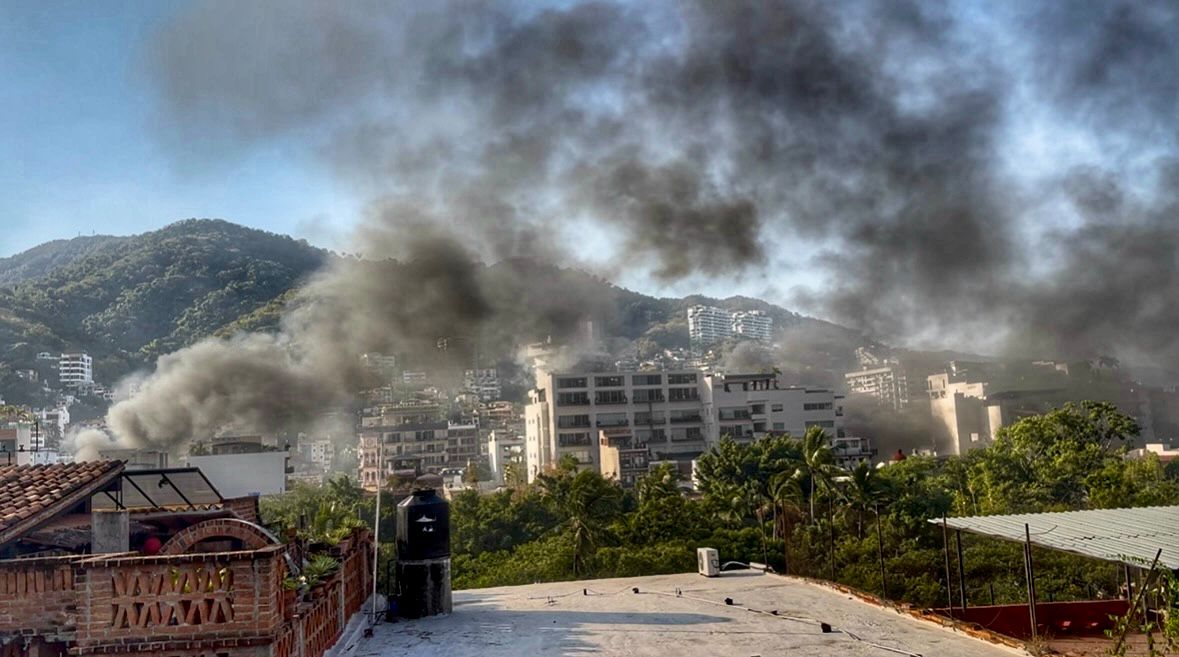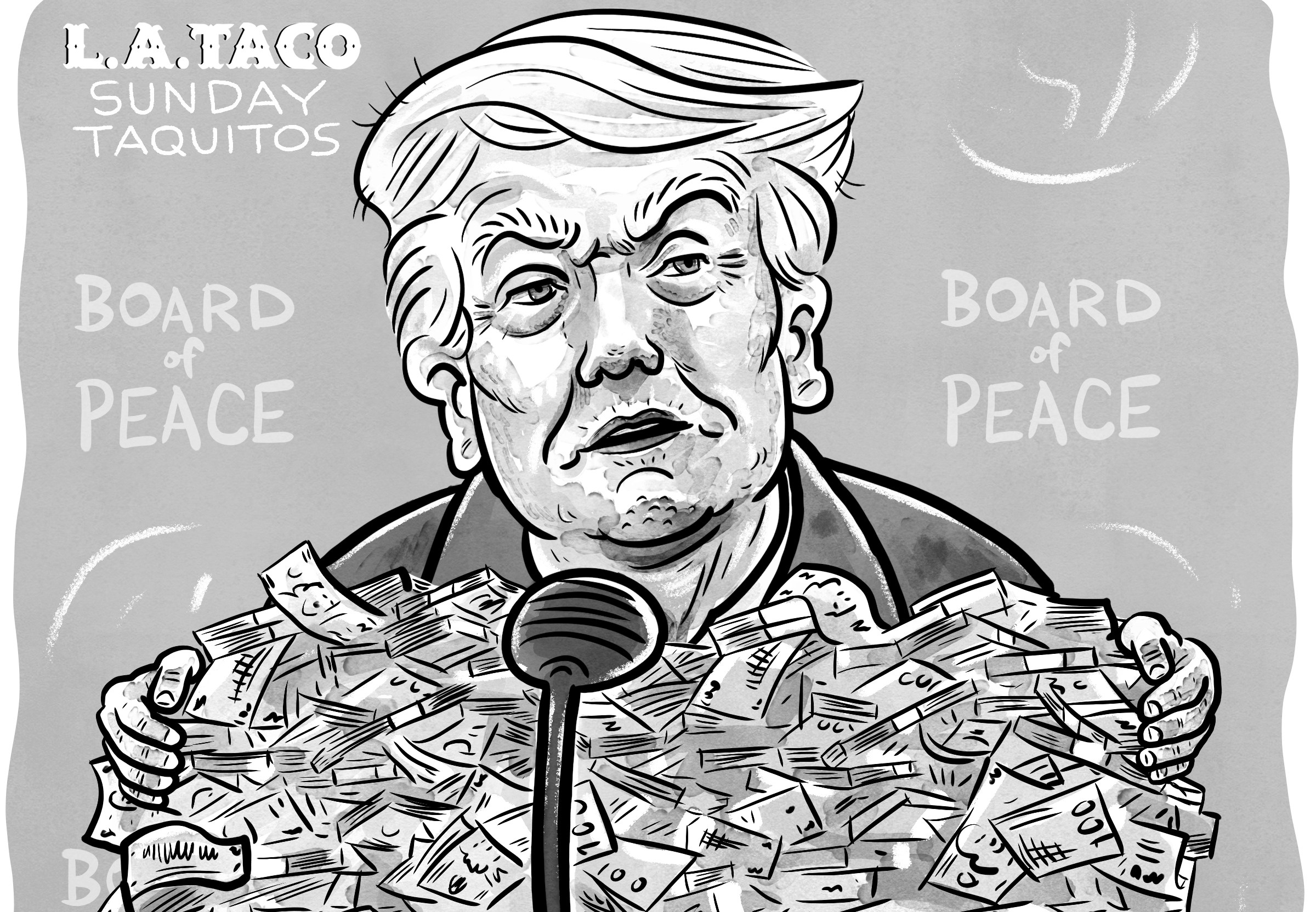[dropcap size=big]I[/dropcap]t’s been three weeks since protests against police brutality and racism ignited in Los Angeles and the movement has not slowed down. Last weekend, skateboarders joined in on the fight for justice with protests being organized in cities like Long Beach, Santa Ana, San Diego, and now Los Angeles.
On Saturday, June 20, more than 500 skaters gathered outside the Vista Theatre in L.A. with their skateboards, roller skates, and even bikes at their feet. The crowd cruised downhill on Sunset Boulevard towards Echo Park. Some held their fist high up in the air as they skated, while others held signs that read, “The People are Rising.” The protest was organized by the group “Skate for Justice” a community organization that organizes peaceful skate protests throughout Los Angeles. The organization is led by 19-year-old Doris Mantley from Pasadena and her group of friends.
“It was important to do this skating protest not just because we skate but because it was a good way to talk about what is happening and do it in a way that people our age can relate to and be engaged and involved,” Mantley said. “To show how the skating community could amplify the movement and use their voices too.”
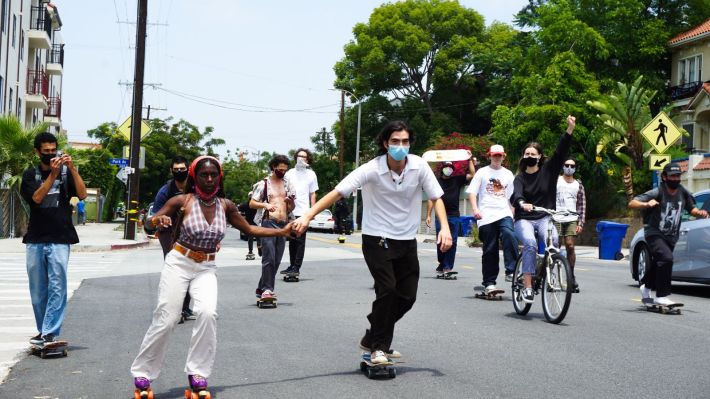
Skaters of all ages joined the protest and once they got to Echo Park they fueled up on tacos and cooled off with some paletas, aguas frescas, and fresh fruit being sold by local vendors. Meanwhile, speakers went up to the microphone to speak about their experiences, anger and ultimately support for the Black Lives Matter movement.
One-man Michael Omeka ended up in Echo Park by chance, he said he had just gone out for a run when he noticed the crowd of skaters. He decided to ask one of them where they were all headed to. Once they informed him what the protest was about, he made his way to the park, where he talked about his encounters with police and racism. “This is more than a moment, this a movement, change is coming,” said Omeka at the end of his speech.
“Skate for Justice” who has an active GoFundMe account was able to raise $3,325 that will be going to three different organizations.
Among the crowd listening to each speaker was Eric Barcena, an L.A. resident who said there were many reasons why events like “Skate for Justice” are so important. “I’m not Black but I'm a person of color, I’m a first-gen Mexican American, so I feel like this is just one domino that's gonna help fight all the other things we need to fight,” Barcena said. “A lot of things need to change, and we have a long way to go but this is the first fight we're fighting.”
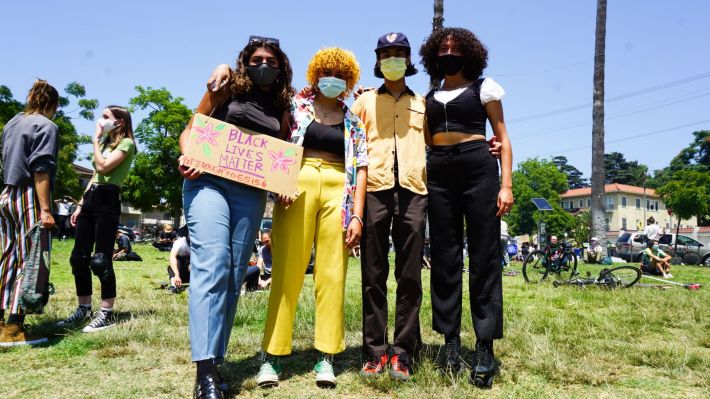
Roller skater Lydia Oweis from OC joined her friends in Echo Park and as someone who is part of the roller-skating community, it was important for her to stand up for what is right. “We need to be an ally in these spaces because the style we long for and look for when it comes to roller-skating has been inspired by them,” Oweis said. “Roller-skating has roots in this movement way before us and people also need to know that.”
She’s right, although it is not often talked about, roller skating and the civil rights movement went hand in hand. Circulating across social media are infographics teaching new and older roller skaters about people like Ledger “Roller Man” Smith. The man who skated from Chicago to Washington D.C. in 1963 to hear Martin Luther King’s famous “I Have a Dream Speech.”
Or how in the 60s most if not all rinks were “off-limits” to Black skaters. Such instances led to protests by the Black community who fought for their right to skate. And despite segregation coming to an end in 1964, roller rinks continued to segregate people by continuing to have “White nights” and “Black nights,” history that the documentary United Skates touches on.
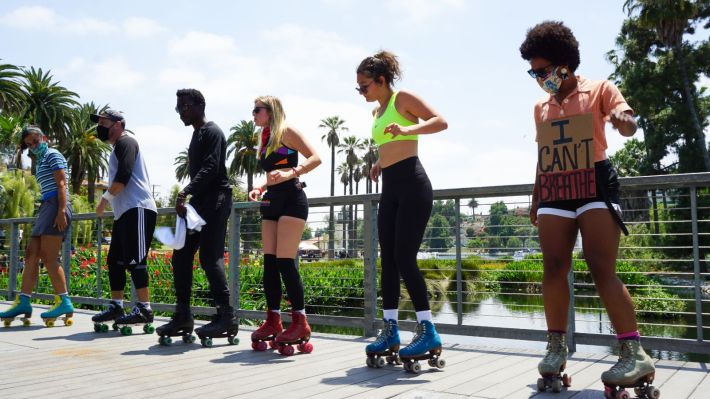
Long time roller skater Wendell Phipes agrees. He said the roller-skating community has been heavily influenced by African American culture and it’s important for him to be a part of protests like “Skate for Justice.”
“No one taught me how to be Black.”
“This event is important to me not only because of my love for roller skating but for my love as an African American man, and for my love as just a human being who has compassion for all people, and as someone who wants to see change,” said Phipes. Other attendees like Kelsey Guy were extremely moved by fellow friends who spoke at the event. When her friend Mark said “No one taught me how to be Black” she began to cry because for her those words rang true. “For me personally this is so big in the skate community and I cherish it because growing up I was always taught to, I guess conform, to not really embrace my blackness as a way to just keep me safe,” Guy said.
She expressed how she struggled and felt guilty for ever feeling like she was a “safe version” of what a Black person could be. As she grew up she realized no matter what she thought, people still followed her whenever she entered certain stores. It also never stopped people from looking at her differently. To her, joining the skating community allowed her the opportunity to dig deeper into her roots and her culture. The more she skated and learned how much influence the Black community had on skating, the more she became more comfortable in her own skin. “I'm excited to embrace and celebrate who I am and carry that with me as I make a family of my own and really embrace Black culture in a way that I never got to as a kid,” she said.
“The beautiful thing about skating is that it makes you feel free and at the end, that’s what we want for our community.”
Aside from hearing stories from speakers and local residents, people were able to line up to receive a free skateboard with the word “Black” printed in yellow. The skateboards were donated by skateboarding shops Real Skateboards and Black By Young. BIPOC youth had their first pick at the skateboards.
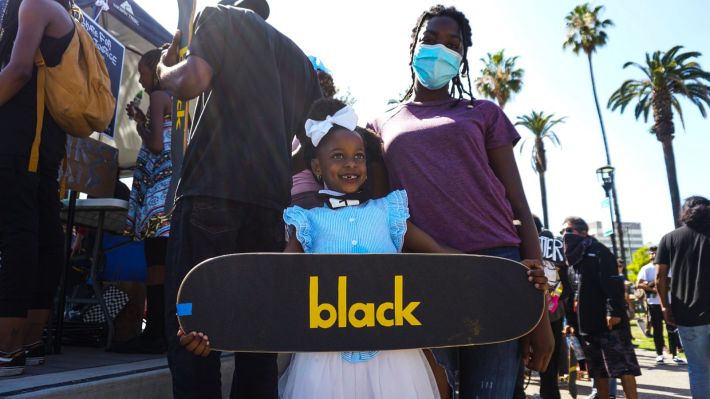
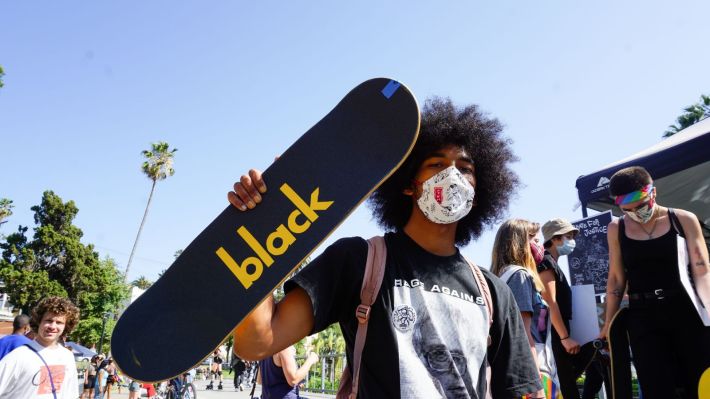
“Youth was something we really wanted to focus on with this event, to make sure we gave the younger people awareness and make sure they know that their voices are heard too,” said Mantley.
“Skate for Justice” who has an active GoFundMe account was able to raise $3,325 that will be going to three different organizations. Mantley said one of the organizations she picked was Colin Kaepernick’s “Know your Rights Camp.” The organization focuses on advancing the liberation and well-being of Black and Brown communities. While the other two were the Black Trans Protestors Emergency Fund and The National Bail Fund Network.
Towards the end, Mantley expressed to the crowd how thankful she was to everyone for making it out that day.
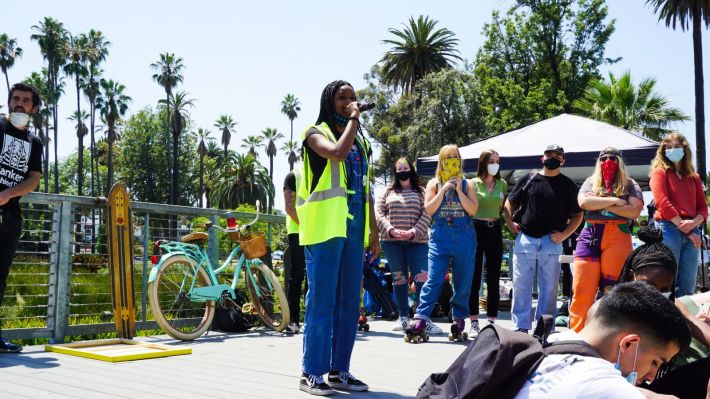
“Whether you skate, bike, walk, run I don't really care because at the end of the day you showed up,” she said. “The beautiful thing about skating is that it makes you feel free and at the end, that’s what we want for our community.”
To find out about when the next LA “Skate for Justice” protest will be, follow them on Instagram @skateforjsutice.
The following photos of the Skate 'For Justice' Rally by Kemal Cilengir
